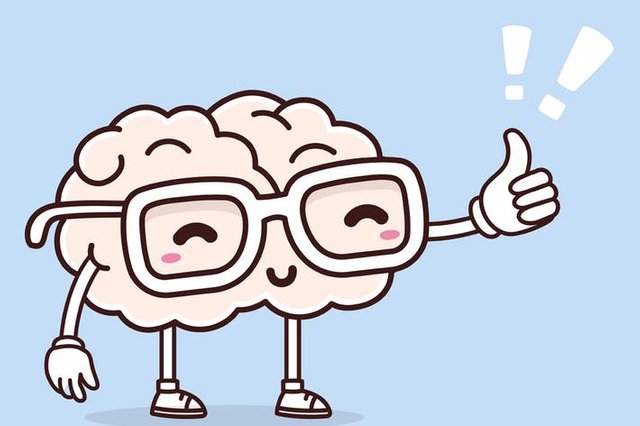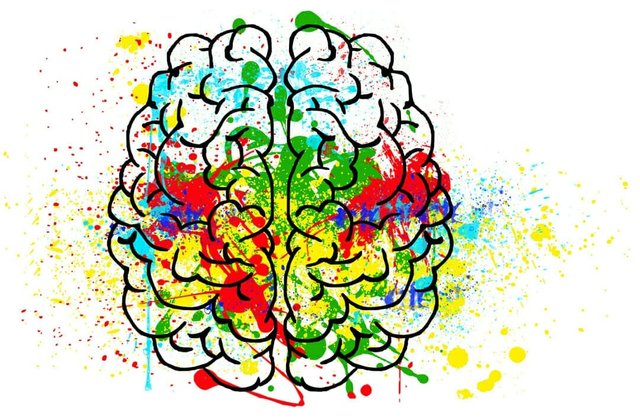Emotions: Focus on the Positive!!
Emotions: Focus on the Positive!!
Emotional experience can vary from person to person. There are many influencers on what emotion ends up being, and basic emotions even combine to form more complex emotions. The study of emotions is not new. Most theories agree that there are 7 to 10 basic emotions. There is agreement, though, that joy, or happiness, o enjoyment is considered to be among the basic emotions. The configuration of emotions can include both positive and negative emotions at the same time! So when one is in awe, according to Robert Plutchick (1980), one may feel both surprise, deemed positive, and fear, deemed negative. Many feel this way during religious experiences, which only shows that ignorance towards negative emotions can not only be flawed, but even damaging.
Research considers positive and negative emotions to be (mostly) independent from each other. This means that having more negative emotions does not impact positive emotions, and having more positive emotions does not impact negative emotions. This conclusion is significant because it allows us to consider that 1) interventions for positivity will not impact negativity, 2) that increases in negativity do not entail decreases in positivity, and 3) it explains why some people can be so darn cheery without ever feeling down, and vice versa.
According to James Russel and Feldman Barrett, research shows that people may have core affects, affects describing the subjective experience of emotion. This means that there are consistently experienced, often unacknowledged emotions that operate on a nearly unconscious level. Research supports the unconscious description of core affects. These core affects can, reasonably, affect how people percieve the world and their own emotional experiences. This, in turn, impacts how emotional experiences can be interpreted.
There are many influencing factors on how emotion comes to be experienced. Namely, biology, behavior, and social and cultural factors influence the experience of emotion. Presented below will be a brief overview of biology, behavior, and social and cultural factors and how they influence behavior.
Biology
Some may not have considered biology to be influential in how we experience the world. Indeed, who your parents are and the way your brain is formed is influential in how you experience emotions.
Neurotransmitters
Research shows that at least some pleasurable experiences are affected by neurotransmitters. Dopamine has been implicated in happiness, and endorphins have been implicated in the increase of pleasure and decrease of pain. Interestingly, the brain also produces its own tetrahydrocannabinol-like chemicals. Tetrahydrocannabinol, or THC, is the main psychoactive component in marijuana.
The Brain
Neuroscientists used to believe that once the brain was formed in childhood, that this was it, and there was no changing it except for its gradual decay. Since then, neuroscientists have discovered neuroplasticity, which shows that the brain actually does change, neuronal connects are made and arborized, and even that the brain's shape and volume can change over time. Research shows that the left prefrontal core is more activated in states of happiness, and that one can even train in the activation of this part of the brain. The brains of Buddhist meditators show these differences as well. The left prefrontal cortex has many responsibilities, so it would be fallacious to say that it is the happiness center of the brain. However, it does assist in the recovery from negative emotions and enhances one's ability to actively suppress negative emotions.
Heredity and Genes
According to Tellegen, Lykken, Bouchard, Wilcox, & Rich (1988) and Lykken and Tellegen (1996), genes play an important role in emotionality. A twin study by the former group found that up to 40% of variability in positive emotionality was explained by heredity, or the genetic make-up of a person, formed by parentage. Up to 55% of variability in negative emotionality was explained by heredit in the same study. Additionally, shared family environment only accounted for 22% of positive emotionality and a shockingly low 2% of negative emotionality. The latter group of researchers found that up to 80% of long-term well-being was accounted for by heredity.
The happiness set point is another concept relating to happiness that is defined by genetics. According to research, most people return to an average level of happiness after swinging either high or low in positive emotionality. This set point is associated with genetics.
This begs the question, does genetic make-up in fact determine how happy and well off someone can be in life? The answer is a resounding no. The environment, although playing a lesser role than genetics, can be modified and interacted with in a way that improves positive emotionality. Also, longitudinal data suggests that one in four people imoprove on ratings of well-being over time, often dramatically. Life satisfaction has also been shown to increase over time. There is also evidence that it is possible to move the happiness set point.
Cognition
How we think is shown to affect our emotions. Thinking styles may be pervasively emotional and therefore it would be easy to suggest a link between how we think and how we feel. Thinking styles regarding time have been shown to be significant as well. Future-oriented people tend to overcome stress while thinking of the satisfaction that can be obtained when it is clear that overcoming the stress can lead to a better future. Present-oriented people tend to indulge in current pleasure, even if it costs them in long-term satisfaction.
Therapies and Interventions
Cognitive behavioral therapy, or CBT, has been credited as successful in part because of the way thinking styles are modified to change the way peoeple think. These interventions include modifying how we think about others, how we think about our future, and how we think about ourselves. Additionally, learned optimism is the process of unlearning negative thinking styles and replacing them with optimistic thinking styles. More information on hope and optimism can be found here.
Behavior
It may be difficult to see how some behaviors can influence our overall happiness. It poses an orientational question regarding many different subjects such as addiction: is one thinking about their addiction, and that is why they indulge, or is one simply acting based on behavioral principles? Avoidant behavior can fall into this category of thought, as well. Avoiding expressing of emotions, and thereby the repression of those emotions, can often lead to the emotions worsening. Most research in this area focuses on what can be done to increase satisfaction through behavior.
Character, Virtues, and Strengths
Character can be defined as how we conduct ourselves as members of society, and often subsumes virtues and strengths. Virtues, as defined by Cheryl Crumpler (2000), are defined as acquired excellences in character traits, the posession of which contributes to a person's completeness or wholeness. Virtues represent ideal states that facilitate adaption to life. Sandage and Hill (2001) state that virtue integrates ethics and health, are embodies traits of character, sources of human strengths, are embedded within a cultural context and community, and are grounded in the cognitive capacity for wisdom.
Top achievers use their strengths to achieve in business, and organizations that tend to develop strengths as opposed to weaknesses tend to perform better. As the addage goes, "focus on your strengths, manage your weaknesses." Positive psychology takes this approach as well, using an emphasis on strengths as opposed to weaknesses to develop happiness. Tests like StrengthsFinder and Values (Virtues) in Action allow one to find strengths and thereby enable a possibility of further personal development. Strengths such as love, zest, curiositym and gratitude are significantly related to life-satisfaction. But again, remember that different cultures may place different emphases on which strengths are important, so results may change based on where one lives. Using strengths to increase happiness is significant and has lasting effects, particularly when applied in new and different ways in life. Remedying of weaknesses can also be important, but it is important to continually apply positivity as to not become inundated in or fixated on the weakness.
More on values in action, often termed virtues in action can be found here. More on strengths can be found here.
Social and Cultural Influences
Social contexts influence happiness, and for that matter, the appropriateness of behavior. Being at a funeral may well impact someone's emotions, just as laughing at that funeral may influenc the behaviors of another. The social constraints model suggests that people regulate their mood based on understanding of social situations. Social status, class structure, and culture influences understanding of both emotions and emotional expressions. There are considerable differences in how people express, label, and promulagate positive emotions throughout the world.
Emotion, Affect, and Mood
It is important to note the differences between emotion, affect, and moods. Affects are the subjective experience of emotions, and moods are more diffuse, global, and pervasive than emotions. The analogy that affect is to mood, as weather is to the season may be an accurateone. Emotions and moods affect just about any psychological process. Positive emotionality can impact greater well-being, romantic relationships by making them better, displays of altruism and generosity by increasing their frequency, careers by making them more successful, creativity through its promotion, and health through its betterment.
Conclusion
Emotionality has a huge role in psychology. It is important to note that there are various behavioral and cognitive interventions in increasing happiness, and those posited today have been supported by research. Articles that suggest happiness fixes are pervasive, and though they may have valid points on how to become happy, it has been shown that some interventions are greater than others (focusing on strengths vs. focusing on weaknesses). In a world that seems to be enshrouded in negativity and pessimism, the author, personally, will take all the positivity he can get.






To listen to the audio version of this article click on the play image.

Brought to you by @tts. If you find it useful please consider upvoting this reply.
Your #post is #awesome and I am #grateful to read it. You make #great #value here. Thanks for your #effort. #Keep it up and #invite on my channel too. ⚡🐒⚡
I appreciate that very much!
You got a 48.16% upvote from @dailyupvotes courtesy of @aceaeterna!
Your post is great.
It's such an eye-opener to many things that were grey in my mind.
Thanks for sharing.
Thank you! Do you mind sharing what was clarified?
Yea. The roles of biology and gene in the determination of our most riding emotions.
Very important, and kind of underestimated! Thank you for sharing.
Many thanks for the exposure
You got a 5.19% upvote from @upmewhale courtesy of @aceaeterna!
Earn 100% earning payout by delegating SP to @upmewhale. Visit http://www.upmewhale.com for details!
This post has received a 13.23 % upvote from @booster thanks to: @aceaeterna.
Very good this article! I could practice my english reading out loud, and there were new words for me. These topics are interesting and I followed you for learning so much more about them.